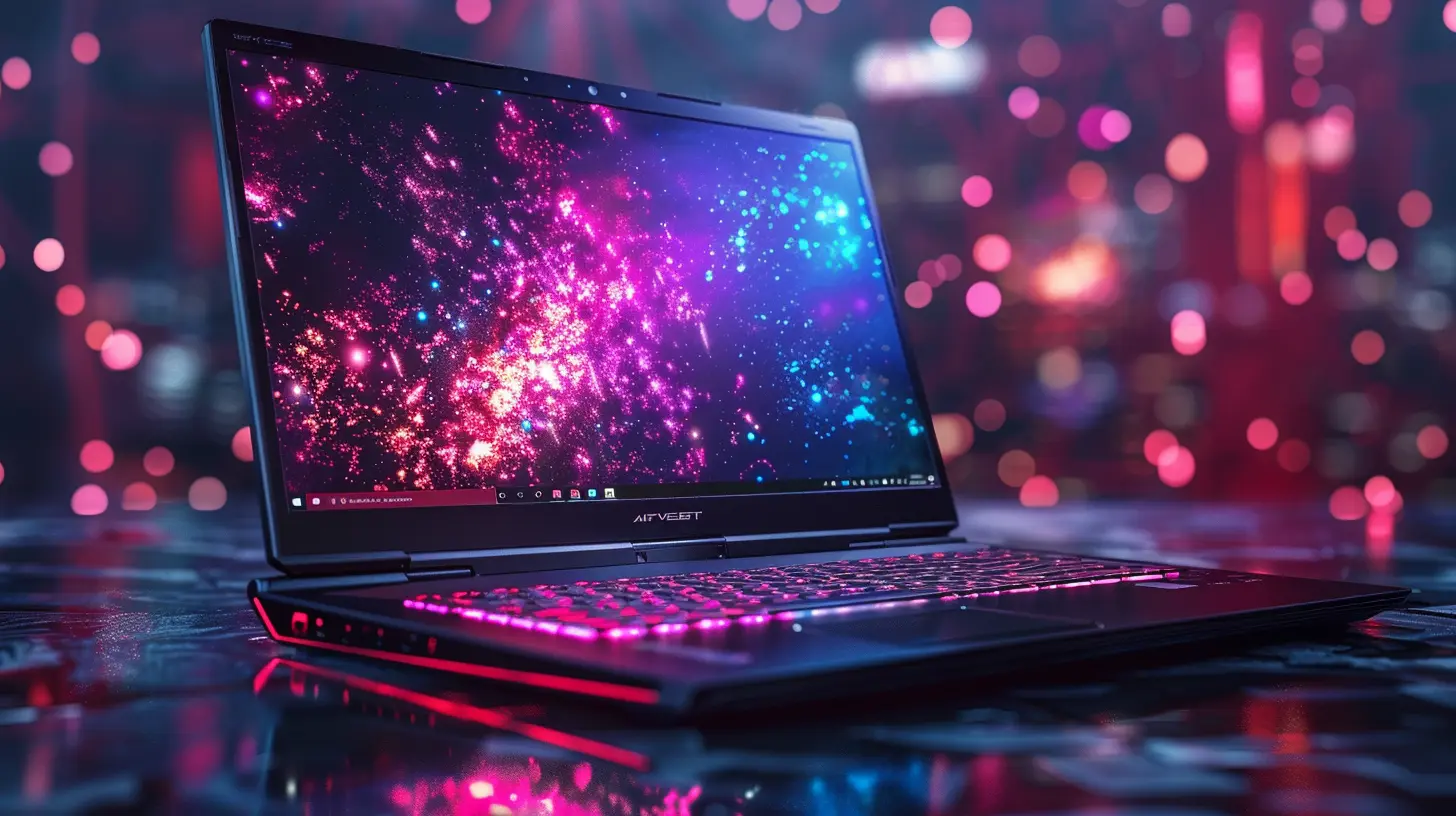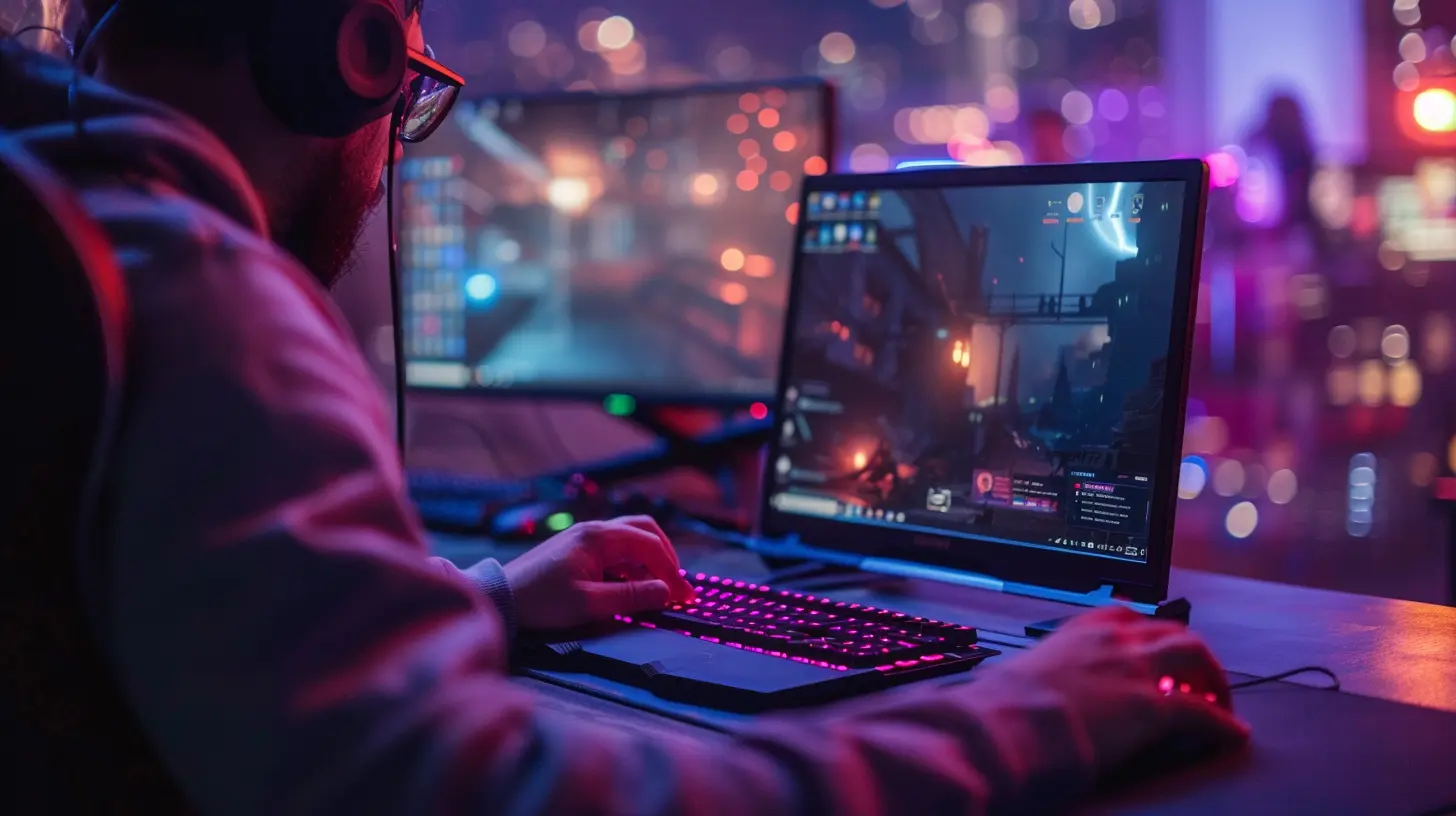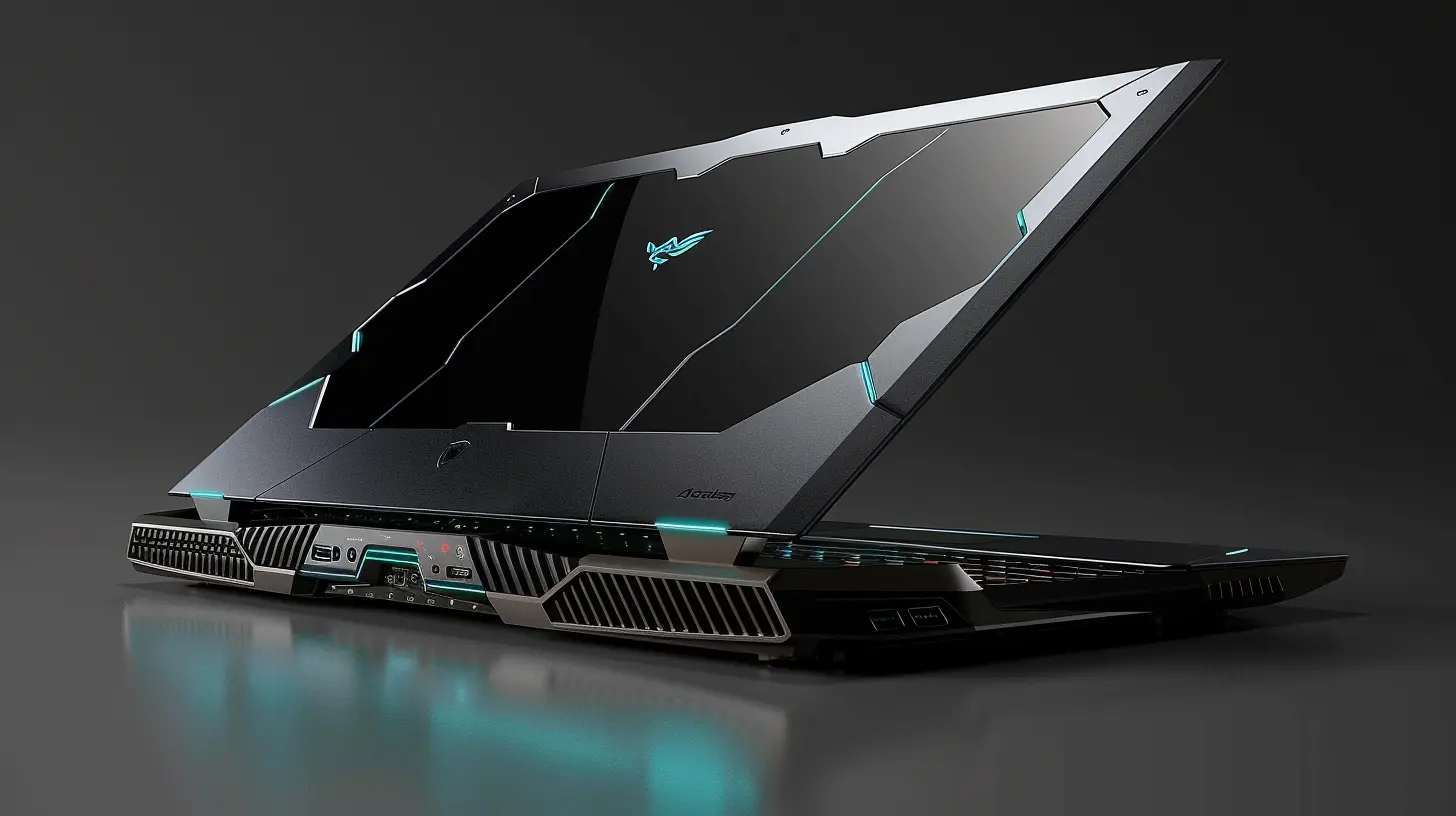Gaming Laptops for VR: What You Need to Know
5 November 2025
Virtual Reality (VR) is no longer just a futuristic dream—it's here, and it's transforming how we experience gaming. But if you're thinking about diving into the immersive world of VR, you need the right hardware. And here's the big question: can a gaming laptop handle it?
The answer is yes—but not just any laptop will do. VR gaming pushes hardware to its limits, demanding high-performance components, powerful GPUs, and lightning-fast refresh rates. So, before you rush to buy a gaming laptop for VR, let's break down everything you need to know. 
What to Look for in a VR-Ready Gaming Laptop
Not all gaming laptops are cut out for VR. To ensure smooth, lag-free gameplay, you must consider several crucial factors.1. GPU (Graphics Processing Unit) – The Heart of VR
When it comes to VR gaming, the GPU is king. VR experiences require a high frame rate to prevent motion sickness and provide a seamless experience.- Minimum Requirement: NVIDIA GeForce GTX 1660 Ti or AMD Radeon RX 5600M
- Recommended: NVIDIA GeForce RTX 3060 or AMD Radeon RX 6700M
- Best Performance: NVIDIA GeForce RTX 4080/4090 or AMD Radeon RX 7900M
A powerful GPU ensures that games run at 90 FPS or higher, which is crucial for an immersive VR experience. Anything below that can cause lag, stuttering, and even nausea.
2. CPU (Central Processing Unit) – The Brain of VR
While the GPU handles visuals, the CPU plays a critical role in running complex simulations and physics in VR worlds.- Minimum Requirement: Intel Core i5-9400 or AMD Ryzen 5 3600
- Recommended: Intel Core i7-12700H or AMD Ryzen 7 6800H
- Best Performance: Intel Core i9-13900HX or AMD Ryzen 9 7945HX
A strong CPU ensures smooth gameplay and minimizes latency, which is essential for an immersive VR experience.
3. RAM – More is Always Better
VR gaming eats up memory fast. The more RAM you have, the better your laptop will handle large VR game files and multitasking.- Minimum Requirement: 8GB RAM
- Recommended: 16GB RAM
- Best Performance: 32GB+ RAM
16GB should be considered the sweet spot, but if you plan to stream or run heavy applications on the side, go for 32GB or more.
4. Storage – SSD is Non-Negotiable
Speed matters in VR, and a slow hard drive can lead to frustrating load times and stuttering gameplay.- Minimum Requirement: 512GB NVMe SSD
- Recommended: 1TB NVMe SSD
- Best Performance: 2TB NVMe SSD or dual-drive setup
Many modern VR games take up 50GB+ of storage, so a large SSD ensures you won’t run out of space too quickly.
5. Display – Do You Need a High Refresh Rate?
Unlike standard gaming, the built-in display of your laptop isn’t as critical for VR, since you'll be using a headset. However, if you're using the laptop for both VR and traditional gaming, a high refresh rate display is a bonus.- Ideal Specs: 144Hz or higher, 1080p or better resolution (preferably QHD or 4K)
While VR headsets handle the visuals directly, having a high-quality display on your laptop ensures the best experience when you're not using VR.
6. Connectivity – Plenty of Ports are a Must
VR systems require multiple ports for tracking sensors, controllers, and the headset itself.- Essential Ports:
- At least one USB 3.0
- USB-C or Thunderbolt 4 for high-speed data
- HDMI 2.0 or DisplayPort for external displays
- Ethernet port (for stable online gaming)
Always check the VR headset's compatibility with your laptop’s ports before purchasing. 
Best Gaming Laptops for VR in 2024
Now that we know what to look for, here are some of the top gaming laptops that can handle VR like a champ:1. ASUS ROG Strix Scar 16 (2024)
- GPU: NVIDIA RTX 4080- CPU: Intel Core i9-13980HX
- RAM: 32GB DDR5
- Storage: 1TB NVMe SSD
- Why It's Great for VR: High-end specs with excellent cooling and a 240Hz display for non-VR gaming.
2. Alienware x17 R2
- GPU: NVIDIA RTX 4090- CPU: Intel Core i9-12900HK
- RAM: 32GB DDR5
- Storage: 2TB NVMe SSD
- Why It's Great for VR: Alienware’s legendary build quality, optimized cooling, and premium VR performance.
3. Razer Blade 18 (2024)
- GPU: NVIDIA RTX 4080- CPU: Intel Core i9-13950HX
- RAM: 32GB DDR5
- Storage: 1TB NVMe SSD
- Why It's Great for VR: Ultra-slim design with powerhouse specs, ideal for portability and performance.
4. Lenovo Legion 7i Gen 8
- GPU: NVIDIA RTX 4070- CPU: Intel Core i7-13700HX
- RAM: 16GB DDR5
- Storage: 1TB NVMe SSD
- Why It's Great for VR: Balanced performance, fantastic cooling, and aggressive pricing.

VR-Compatible Gaming Laptops vs. Desktop PCs: What’s the Difference?
If you're wondering whether to get a gaming laptop or build a VR-ready desktop PC, here are some key differences:| Feature | Gaming Laptop | Desktop PC |
|------------|-----------------|---------------|
| Portability | ✅ Yes | ❌ No |
| Upgradeability | ❌ Limited | ✅ Fully Upgradeable |
| Performance | ⚠️ Limited by thermals | ✅ Better cooling, more power |
| Price-to-Performance | ❌ Less value per dollar | ✅ Better value for performance |
While desktop PCs generally offer better upgradeability and performance, gaming laptops provide the convenience of portability. If you're always on the move, a gaming laptop is the way to go. 
Tips to Optimize Your Gaming Laptop for VR
Even with a powerful gaming laptop, you need to ensure it’s running at peak efficiency for VR. Here’s how:- Keep Drivers Updated: Regularly update your GPU and VR drivers for better performance.
- Optimize Power Settings: Set your laptop to "High Performance" mode in Windows settings.
- Close Background Apps: Running too many applications can slow down VR performance.
- Use a Cooling Pad: VR gaming heats up your laptop fast—use a cooling pad to prevent thermal throttling.
- Check USB Bandwidth: Some VR headsets need high-speed USB ports—ensure they’re properly connected.
Final Thoughts
Gaming laptops for VR have come a long way. With the right specs, you can enjoy an immersive, lag-free experience without being tied to a bulky desktop PC.If you're serious about VR gaming, investing in a laptop with a high-end GPU, fast CPU, ample RAM, and SSD storage is non-negotiable. Hopefully, this guide has helped you make a more informed decision about what to buy. So, is your laptop VR-ready, or is it time for an upgrade?
all images in this post were generated using AI tools
Category:
Gaming LaptopsAuthor:

Adeline Taylor
Discussion
rate this article
1 comments
Chelsea McKeever
Great insights on selecting gaming laptops for VR! Your breakdown of essential specs and features is incredibly helpful for gamers looking to enhance their virtual reality experience. I appreciate the thorough research and clear explanations—definitely a valuable resource for both newcomers and seasoned players.
November 6, 2025 at 4:28 AM

Adeline Taylor
Thank you for the kind words! I'm glad you found the insights helpful for enhancing your VR gaming experience. Happy gaming!


